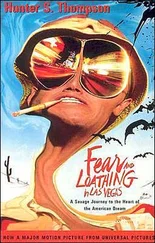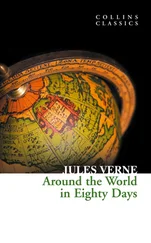JOURNEY TO THE CENTRE OF THE EARTH
Jules Verne

Cover
Title Page JOURNEY TO THE CENTRE OF THE EARTH Jules Verne
CHAPTER 1: The Professor and His Family
CHAPTER 2: A Mystery to be Solved at any Price
CHAPTER 3: The Runic Writing Exercises the Professor
CHAPTER 4: The Enemy to be Starved into Submission
CHAPTER 5: Famine, then Victory, Followed by Dismay
CHAPTER 6: Exciting Discussions about an Unparalleled Enterprise
CHAPTER 7: A Woman’s Courage
CHAPTER 8: Serious Preparations for Vertical Descent
CHAPTER 9: Iceland! but what Next?
CHAPTER 10: Interesting Conversations with Icelandic Savants
CHAPTER 11: A Guide Found to the Centre of the Earth
CHAPTER 12: A Barren Land
CHAPTER 13: Hospitality Under the Arctic Circle
CHAPTER 14: But Arctics can be Inhospitable, too
CHAPTER 15: SnÆfell at Last
CHAPTER 16: Boldly Down the Crater
CHAPTER 17: Vertical Descent
CHAPTER 18: The Wonders of Terrestrial Depths
CHAPTER 19: Geological Studies in Situ
CHAPTER 20: The First Signs of Distress
CHAPTER 21: Compassion Fuses the Professor’s Heart
CHAPTER 22: Total Failure of Water
CHAPTER 23: Water Discovered
CHAPTER 24: Well Said, Old Mole! Canst Thou Work I’ the Ground so Fast?
CHAPTER 25: De Profundis
CHAPTER 26: The Worst Peril of All
CHAPTER 27: Lost in the Bowels of the Earth
CHAPTER 28: The Rescue in the Whispering Gallery
CHAPTER 29: Thalatta! Thalatta!
CHAPTER 30: A New Mare Internum
CHAPTER 31: Preparations for a Voyage of Discovery
CHAPTER 32: Wonders of the Deep
CHAPTER 33: A Battle of Monsters
CHAPTER 34: The Great Geyser
CHAPTER 35: An Electric Storm
CHAPTER 36: Calm Philosophic Discussions
CHAPTER 37: The Liedenbrock Museum of Geology
CHAPTER 38: The Professor in His Chair Again
CHAPTER 39: Forest Scenery Illuminated by Electricity
CHAPTER 40: Preparations for Blasting a Passage to the Centre of the Earth
CHAPTER 41: The Great Explosion and the Rush Down Below
CHAPTER 42: Headlong Speed Upward Through the Horrors of Darkness
CHAPTER 43: Shot Out of a Volcano at Last!
CHAPTER 44: Sunny Lands in the Blue Mediterranean
CHAPTER 45: All’s Well that Ends Well
CLASSIC LITERATURE: WORDS AND PHRASES adapted from the Collins English Dictionary
About the Author
History of Collins
Copyright
About the Publisher
CHAPTER 1 The Professor and His Family
On the 24th of May, 1863, my uncle, Professor Liedenbrock, rushed into his little house, No. 19 Königstrasse, one of the oldest streets in the oldest portion of the city of Hamburg.
Martha must have concluded that she was very much behindhand, for the dinner had only just been put into the oven.
“Well, now,” said I to myself, “if that most impatient of men is hungry, what a disturbance he will make!”
“M. Liedenbrock so soon!” cried poor Martha in great alarm, half opening the dining-room door.
“Yes, Martha; but very likely the dinner is not half cooked, for it is not two yet. Saint Michael’s clock has only just struck half-past one.”
“Then why has the master come home so soon?”
“Perhaps he will tell us that himself.”
“Here he is, Monsieur Axel; I will run and hide myself while you argue with him.”
And Martha retreated in safety into her own dominions.
I was left alone. But how was it possible for a man of my undecided turn of mind to argue successfully with so irascible a person as the Professor? With this persuasion I was hurrying away to my own little retreat upstairs, when the street door creaked upon its hinges; heavy feet made the whole flight of stairs shake; and the master of the house, passing rapidly through the dining-room, threw himself in haste into his own sanctum.
But on his rapid way he had found time to fling his hazel stick into a corner, his rough broadbrim upon the table, and these few emphatic words at his nephew:
“Axel, follow me!”
I had scarcely had time to move when the Professor was again shouting after me:
“What! not come yet?”
And I rushed into my redoubtable master’s study.
Otto Liedenbrock had no mischief in him, I willingly allow that; but unless he very considerably changes as he grows older, at the end he will be a most original character.
He was professor at the Johannæum, and was delivering a series of lectures on mineralogy, in the course of every one of which he broke into a passion once or twice at least. Not at all that he was over-anxious about the improvement of his class, or about the degree of attention with which they listened to him, or the success which might eventually crown his labours. Such little matters of detail never troubled him much. His teaching was, as the German philosophy calls it, “subjective”; it was to benefit himself, not others. He was a learned egotist. He was a well of science, and the pulleys worked uneasily when you wanted to draw anything out of it. In a word, he was a learned miser.
Germany has not a few professors of this sort.
To his misfortune, my uncle was not gifted with a sufficiently rapid utterance; not, to be sure, when he was talking at home, but certainly in his public delivery; this is a want much to be deplored in a speaker. The fact is, that during the course of his lectures at the Johannæum, the Professor often came to a complete standstill; he fought with wilful words that refused to pass his struggling lips, such words as resist and distend the cheeks, and at last break out into the unasked-for shape of a round and most unscientific oath: then his fury would gradually abate.
Now in mineralogy there are many half-Greek and half-Latin terms, very hard to articulate, and which would be most trying to a poet’s measures. I don’t wish to say a word against so respectable a science, far be that from me. True, in the august presence of rhombohedral crystals, retinasphaltic resins, gehlenites, Fassaites, molybdenites, tungstates of manganese, and titanite of zirconium, why, the most facile of tongues may make a slip now and then.
It therefore happened that this venial fault of my uncle’s came to be pretty well understood in time, and an unfair advantage was taken of it; the students laid wait for him in dangerous places, and when he began to stumble, loud was the laughter, which is not in good taste, not even in Germans. And if there was always a full audience to honour the Liedenbrock courses, I should be sorry to conjecture how many came to make merry at my uncle’s expense.
Nevertheless my good uncle was a man of deep learning—a fact I am most anxious to assert and reassert. Sometimes he might irretrievably injure a specimen by his too great ardour in handling it; but still he united the genius of a true geologist with the keen eye of the mineralogist. Armed with his hammer, his steel pointer, his magnetic needles, his blowpipe, and his bottle of nitric acid, he was a powerful man of science. He would refer any mineral to its proper place among the six hundred * elementary substances now enumerated, by its fracture, its appearance, its hardness, its fusibility, its sonorousness, its smell, and its taste.
The name of Liedenbrock was honourably mentioned in colleges and learned societies. Humphry Davy, † Humboldt, Captain Sir John Franklin, General Sabine, never failed to call upon him on their way through Hamburg. Becquerel, Ebelman, Brewster, Dumas, Milne-Edwards, Saint-Claire-Deville frequently consulted him upon the most difficult problems in chemistry, a science which was indebted to him for considerable discoveries, for in 1853 there had appeared at Leipzig an imposing folio by Otto Liedenbrock, entitled, “A Treatise upon Transcendental Chemistry,” with plates; a work, however, which failed to cover its expenses.
Читать дальше












